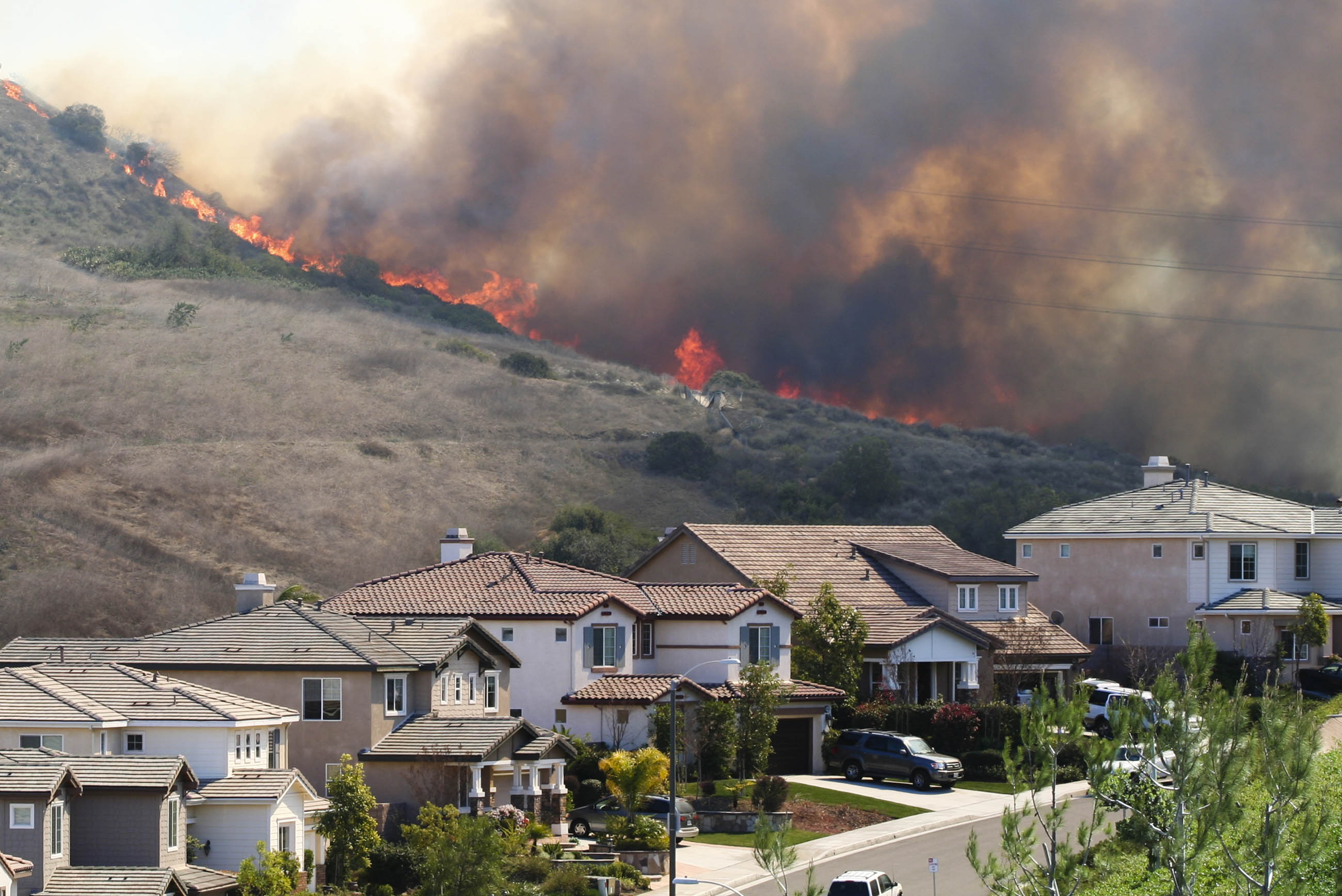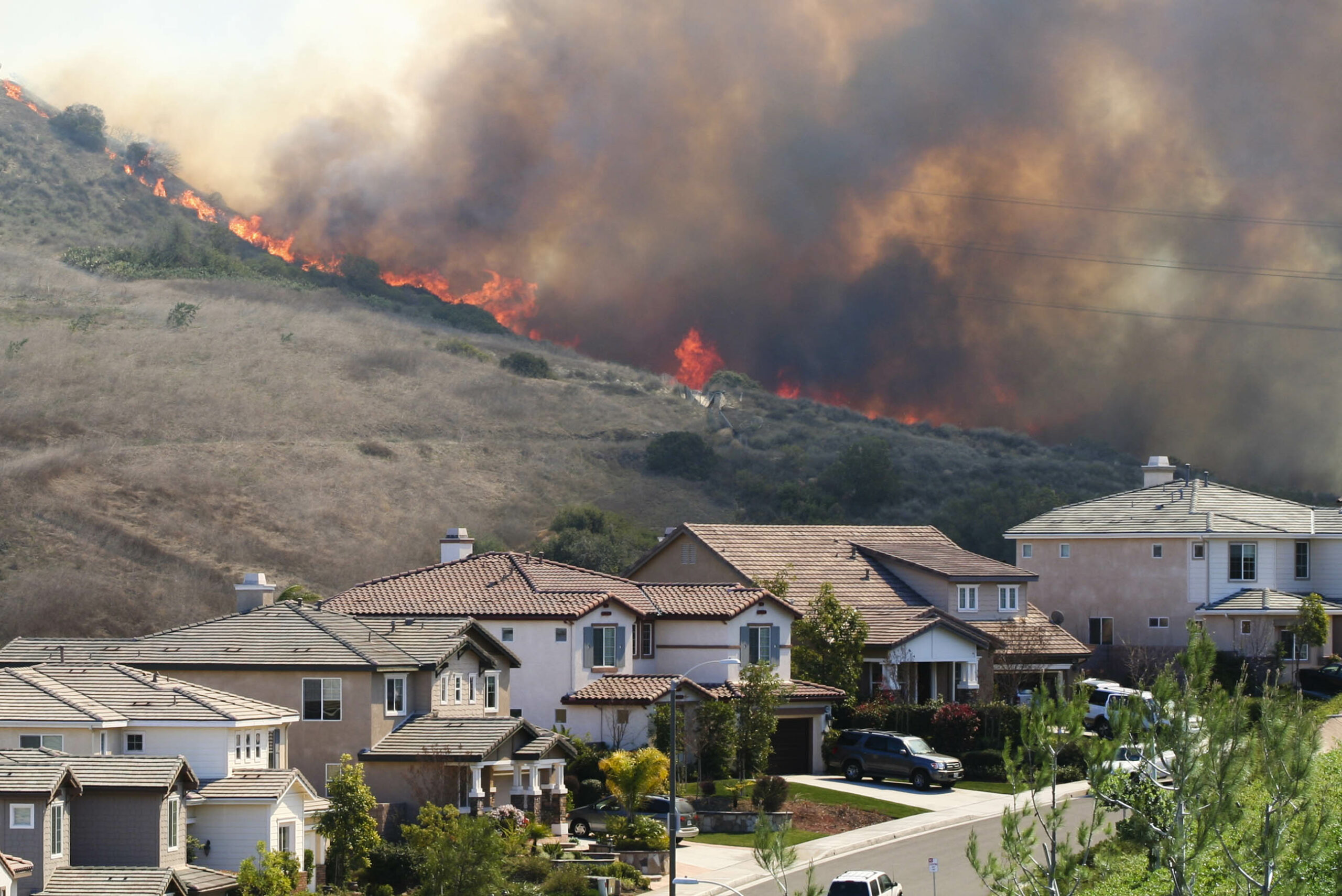
Researchers at the University of Arizona Mel and Enid Zuckerman College of Public Health will work in close collaboration with fire departments and firefighters to measure the exposure risk of wildland-urban fires and evaluate interventions to improve firefighter health, thanks to a $3.8 million grant from the National Institute of Environmental Health Sciences.
Wildfires are increasingly extending into the wildland-urban interface, where developed and undeveloped lands meet. The burning of a mixture of vegetation, structures and vehicles at the wildland-urban interface results in greater smoke complexity and potential toxicity for firefighters, who are already at increased risk for health issues and cancers.
Jeff Burgess, MD, MS, MPH, is a professor and director of the Center for Firefighter Health Collaborative Research at the Mel and Enid Zuckerman College of Public Health. His research focuses on improving occupational and environmental health and safety, working in partnership with firefighters and other public safety personnel, miners and Indigenous communities.
“With more firefighters battling fires in the wildland-urban interface due to new construction and climate change, we need to better understand their exposures and health effects so we can reduce risk as much as possible and keep our firefighters healthy,” said Jeff Burgess, MD, MS, MPH, professor of public health and director of the Center for Firefighter Health Collaborative Research, who will lead the study, “Wildland-Urban Interface Fire Exposures, Effects, and Interventions: A Collaborative Research-to-Action Partnership with Firefighters.”
Wood and biomass smoke contains known and suspect carcinogens, and smoke exposure is associated with increased cancer incidence in animal and human studies. Climate change is increasing wildfire risk in the United States. Since 2000, an average of 70,685 wildfires have burned an average of 7.1 million acres each year.
Prior studies about firefighters who respond to wildland-urban interface fires found prolonged dermal exposure and limited personal protective equipment, but there is a marked research gap regarding exposures, toxic effects and effective ways of reducing exposure.
Burgess and the research team will work with Los Angeles County Fire Department and Orange County Fire Authority firefighters who are enrolled in the Fire Fighter Cancer Cohort Study.
During the study, researchers will use silicone wristbands, pre- and post-exposure urinalysis, and changes in DNA to measure firefighter chemical exposures during wildland-urban interface responses and the toxic effects of those exposures. Exposure-reduction interventions selected by the fire service will also be evaluated, including more rapid reporting of exposure data, improved personal protective equipment and dermal decontamination, and administrative controls.
Participants in the Fire Fighter Cancer Cohort Study requested the research. Burgess, who is a member of the BIO5 Institute and the University of Arizona Cancer Center, says community-engaged research is essential to protecting firefighters because they know what is feasible, they are trusted by their fellow firefighters and communicate risks to them, they have the knowledge to identify and test interventions, and they can lead changes.
The community-engaged research should provide a more complete measure of the impact of wildland-urban interface fires directly benefit firefighters and inform overall public health responses.
“Dr. Burgess’ innovation and leadership in health research for firefighters has benefitted firefighters all over the world,” said Iman Hakim, MD, PhD, MPH, dean of the UArizona Zuckerman College of Public Health. “This research-to-action approach builds data that guides interventions to keep firefighters safer. It will make a big difference in health outcomes for these men and women who put their lives on the line to keep the rest of us safe from wildfires, and it is a great example of public health in action.”
The study will be conducted in partnership with firefighter research liaisons Derek Urwin, PhD, of UCLA and formerly of the Los Angeles County Fire Department; Capt. Jamie Gabriel of the Los Angeles County Fire Department; retired Capt. Jeff Hughes of the Orange County Professional Firefighters; and Capt. Derek Biering of the Orange County Fire Authority. Melissa Furlong, PhD, and Yiwen Liu, PhD, of the Zuckerman College of Public Health are co-investigators for the study. Additional university research partners include Jackie Goodrich, PhD, of the University of Michigan and Heather Stapleton, PhD, of Duke University.
This research is supported by the National Institute of Environmental Health Sciences, a division of the National Institutes of Health, under award number R01ES035965.

mexican pharmaceuticals online: mexico pharmacy – mexico drug stores pharmacies